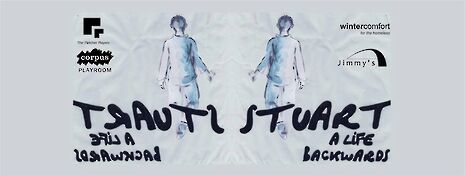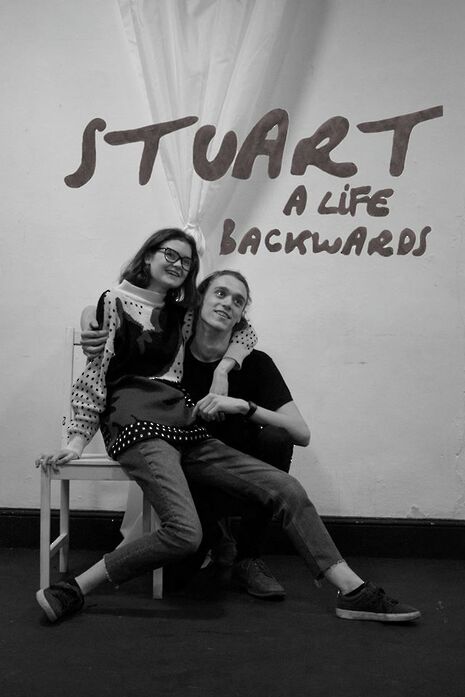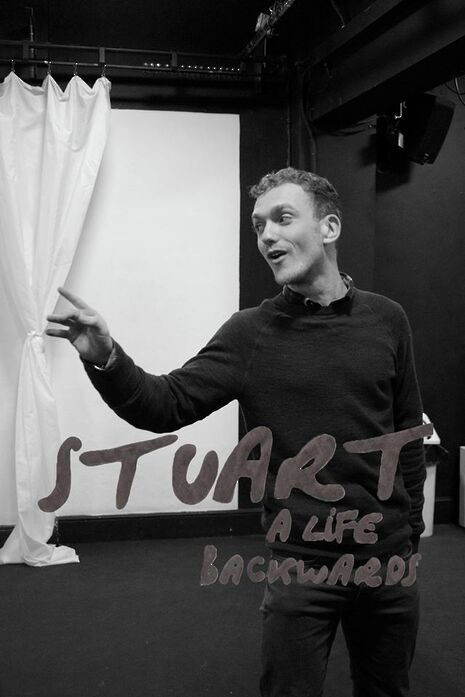Art with an agenda: homelessness and Cambridge theatre
Peter Chappell caught up with the cast and crew of Stuart: A Life Backwards during their sponsored sleep-out to talk about caricatures, Cambridge and creating something that’s “more than a creative vision”

Stuart: A Life Backwards has a buzz around it, and it’s easy to see why. Unusually for student theatre it is looking beyond the university bubble, confronting an issue which is highly visible to Cambridge students. The contrasts of privilege in this town are numerous, but homelessness is by far the most human example. The students involved in this Corpus main show have set out to tell a story which is full of empathy and humour, and do some practical good at the same time.
The story centres on a ‘chaotic’ homeless man and his blossoming friendship with Alexander Masters, a Cambridge graduate and writer. On a bitterly cold night, I went down to Mill Lane, where the cast and crew were staging a sleep-out to raise money for Jimmy’s homeless charity, to chat to them about this exciting creative and social project.
“When it is such a big issue, you can’t just put on a play and leave it there. You have to engage with it”
Dan Sanderson (Director) outlined how they approached the story. “We spoke to Stuart’s family who still live in Cambridge and they’re coming to see the show”. The production has been supported by the writer, too. “It’s about trying to understand. Jimmy’s have been incredibly helpful”. Tom Bevan (Producer) added that “they were really helpful. The Winter Comfort campaign is how Stuart and Alexander got to know each other”.

“This doesn’t feel like a play”, joked Tom, discussing his role in creating the show. “Most of the admin stuff I’ve done has been setting up the sleep-out, communicating with the charities. All this takes up way more time. It feels different. We haven’t done any publicity so far but we’ve already sold out the last night. So this is sponsored and we’ve raised £1,500. I’ve just ordered 300 postcards which will be sold on the night. All the profits from that will go to the charities. Cambridge is a resource-rich place.” Alistair Henfrey (Assistant Director) explained that while “Cambridge theatre can be quite self-involved”, Stuart “is quite a selfless production”.
I asked some of the cast what they had been up to in rehearsals. Ben Leitch (playing Stuart) discussed the “really big emphasis on character work. Stuart is disabled and suffers from muscular dystrophy. We have to make sure we give a sensitive portrayal and not a caricature”. I asked the cast if they had enjoyed the rehearsal process. Ben, laughing, said it had been “fun but difficult!”
“Stuart is probably particularly difficult. For the average Cambridge actor, Alexander is probably less challenging being a Cambridge graduate himself”.
“The play is ‘a presentation of character’ in a complex narrative, rather than a wholesale statement on homelessness”
Putting a play like this inevitably comes with many challenges. Dan said they came across similar pitfalls in presenting this story on stage as Masters encountered when he was writing the book itself. The central message of the play is that “you can never really explain someone”. The play is “a presentation of character” in a complex narrative, rather than a wholesale statement on homelessness.

Talking to the cast and crew while they were on their sleep-out made me curious as to how important raising money for the homeless charity was at the start of the project. “Jimmy’s have been great”, Dan told me. “I think sometimes with Cambridge theatre plays are often put on that deal with issues but don’t really engage with them”.
I asked him what he meant by that. “Well, say you’re putting on a play about homelessness in Cambridge, when it is such a big issue, you can’t just put on a play and leave it there. You have to engage with it, and the people who are affected by the issue. It was always going to be more than a creative vision, it was to be a project, too”
 News / Colleges charge different rents for the same Castle Street accommodation2 March 2026
News / Colleges charge different rents for the same Castle Street accommodation2 March 2026 News / King’s hosts open iftar for Ramadan3 March 2026
News / King’s hosts open iftar for Ramadan3 March 2026 Theatre / Lunatics and leisure centres 4 March 2026
Theatre / Lunatics and leisure centres 4 March 2026 News / Angela Merkel among Cambridge honorary degree nominees27 February 2026
News / Angela Merkel among Cambridge honorary degree nominees27 February 2026 News / News in Brief: waterworks, wine woes, and workplace wins 1 March 2026
News / News in Brief: waterworks, wine woes, and workplace wins 1 March 2026







